How Training, Nutrition, And Eating Frequency Affect Overall Health And Body Composition Pt 1
I came to Thailand in December to focus on making YouTube videos.
The idea was that I would give myself a year to get to 10k subscribers and then move back to America to start shooting more professional videos in one of the YouTube Space locations - a fully-equipped TV studio where Creators could collaborate, plan, and shoot high quality videos with one another with the aid of professional equipment instead of their iPhones.
Four months later we're sitting at 632 subscribers (170 for my digital marketing channel) and one very burnt out @yallapapi.
Yeah I know, things take time and blah blah blah. But fuck all that shit. I don't feel like waiting anymore.
If only I was this good at everything
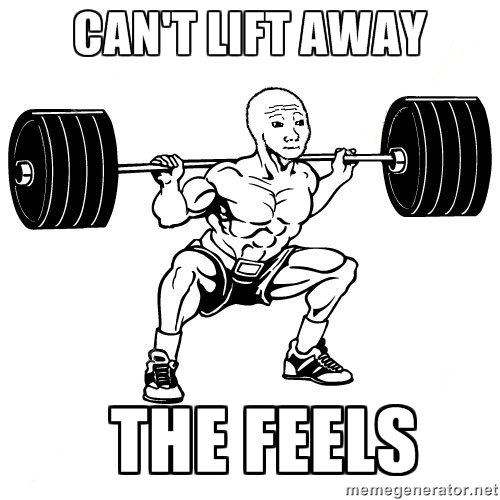
I'm not going to say that the time was wasted as I definitely expanded my skillset and learned a ton of useful stuff that I wouldn't have learned otherwise.
But with the goal being only 0.6% complete and taking up much of my time and mental energy, it's time to try a different strategy.
It's not that I even really give that much of a shit about fitness. It's been such an integral part of my life since I was a teenager that I don't even think about it so much. It just is.
Fitness is just so EASY for me. It can be done completely alone without the involvement of other human beings and the only limiting factor is your time and physical energy.
I guess for some people that's a problem. But for someone who strives to structure his life to have as much free time as possible, not so much.
That said, since I started putting myself out there as a "fitness authority," I've been getting a lot of the same questions over and over, leading me to believe that people are approaching health and fitness with the wrong mental framework.
I think that one of the reasons why I find being fit so simple isn't that I've spent years researching obscure facts about nutrients and training methods, but that I have 3-4 simple rules that I follow which allows the decision making process to run on autopilot.
And in my usual @yallapapi style, I'm going to convey those concepts to you in a no-nonsense bullshit-free way so you can take action on them ASAP... if you want.
The Rules
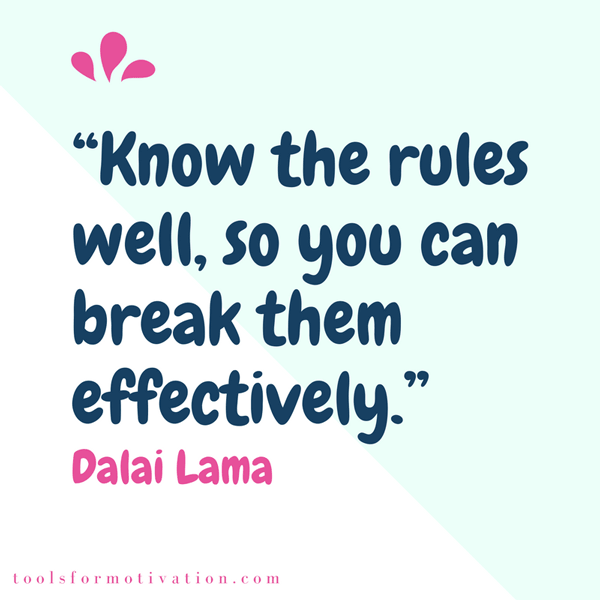
This is not your standard mainstream media nonsense that is designed to give you simple-stupid advice backed up SOLELY by science and modern medicine, but also include my personal structural concepts for fitness and ample anecdotal evidence that I've gathered after 20 years (!) as a fitness enthusiast.
Anyway, here they are:
- Training style (exercise)
- The foods you eat (nutrition)
- Eating frequency (fasting)
- Supplements (covered in the next article - apparently this post was too long for Steemit)
I'll go over each of these in detail in the sections below, but before we get into that, one thing you need to start doing if you haven't already is to start thinking for yourself and take the advice of "experts" with a grain of salt.
People who have been in the fitness game for a while can easily spot the difference between a "doctor" that appears on daytime TV and recommends a certain health protocol because it aligns with the public perception of what "should" work vs an actual fitness veteran who, just by the very nature of having participated in literally thousands of physical training sessions, has experimented with different training modalities and can give recommendations based on his experiences with them.
But people who haven't done any sort of exercise since high school are not so savvy. With all the different advice out there for health and fitness, things can get very confusing very fast.
Everyone seems to be contradicting each other. Every question has multiple answers, and things get so confusing that you end up "learning" most of your information from infographics that recommend 3 sets of 10 for 6-7 exercises to "build a perkier butt" or "get toned arms in time for summer."
Meanwhile, questions like these remain unanswered or are answered with so much variety that people don't know what to believe.
- Are carbs good or bad?
- Can you eat fruit if you're trying to lose weight?
- How do you lose belly fat?
- What's the best type of cardio to do?
Most beginners are justifiably lost when it comes to what they actually should do. But like with any other new activity that pushes your comfort zone, the important thing is to get started and figure things out along the way.
Yes, this is a new activity that is going to demand 5-6 hours a week for the rest of your life.
Is it worth the time? I think the benefits in body composition, the involuntary admiration (jealousy?) of your fellow humans, and the overall improved quality of life make that an easy decision. But ultimately that's for you to decide.
Anyway, my point is that you should think for yourself. Except for this article. You should take everything I say as gospel and not question any of it.
How your training methodology affects your body composition
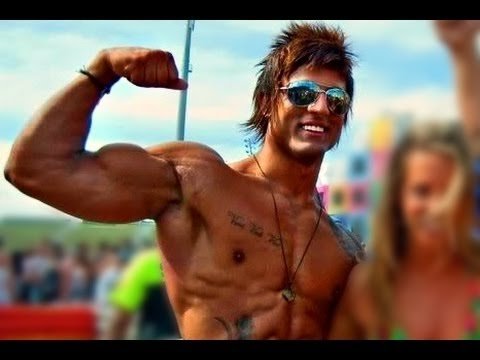
In the fitness world, there is a concept called "form follows function."
Unpacked, this means that the shape of your body will reflect what it's capable of. Granted, there is some leeway here as bigger muscles do not always equal more strength [(see: neural adaptation), but for the most part you can accept this to be true.
The simplest way to visualize this is to look at professional arm wrestlers. They generally prefer one arm over the other in competitions and will train accordingly. This inevitably leads to muscular imbalances where one of their arms is 2x the size of the other.
So if form follows function, it's safe to assume that the increase in muscle mass (and all the other non-visible changes that occur "under the hood") corresponds to an increase in athletic ability for their particular sport.
Okay great, but what does that do for your average person who just wants to get more fit? You obviously don't want one Popeye arm and one noodle arm, so how does that help you?
Let's take a more subtle example: if we look at the bodies of [an Olympic sprinter, [a marathon runner, and a professional boxer, we'll see three distinct body types.
The sprinter is jacked and symmetrical, the marathon runner is full-on Auschwitz-mode, and the boxer is lean with clearly defined and dense muscles.
Ignoring for a second the fact that people with certain body types have a tendency to gravitate towards sports where their own body type lends them a natural advantage, we can look at these people and attribute their different body types to the way they train.
The Olympic sprinter likely does a lot of sprints. His sport requires short bursts of energy at max effort, so he probably does some explosive training as well like plyometrics, maybe with a little Olympic lifting thrown in as well.
The marathon runner probably does a lot of jogging. Extra muscle would just weigh him down and make it much harder for him to compete, so as a response to the type of training he does, his body gets rid of the additional muscle.
The boxer is somewhat of a hybrid of the two - his sport requires both extreme endurance and hundreds of short bursts of energy at max effort in the form of punches, feints, blocks, etc.
With the potential for a fight to last 12 rounds, the sprinter's training protocol would leave him gassed by the third round, whereas the marathon runner's training would sap him of all of his punching power.
These are extremely simplified explanations, but take the point: the way these athletes train affects their physical capabilties and overall body composition.
So if you want to look like a sprinter, train like a sprinter.
If you want to look like a marathon runner for some reason, train like a marathon runner.
And if you want to look like a boxer... you get the idea.
A word about bodybuilding
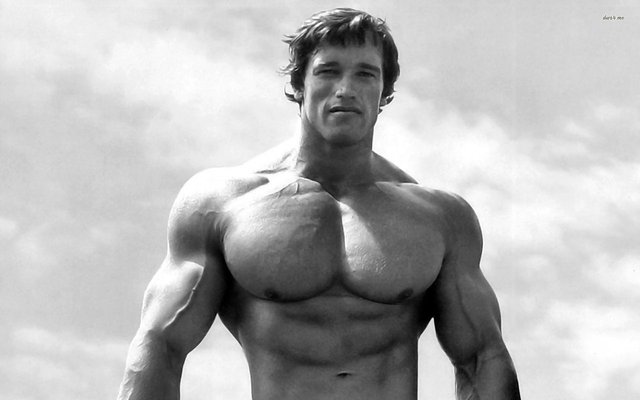
Notice that I left out bodybuilding.
Despite the fact that most gyms cater almost exclusively to "athletes" performing bodybuilding-style workouts (thanks Arnold), I believe that this type of training is one of the most inefficient wastes of time and biggest mistakes that intermediate lifters make.
We'll get into why in a second, but let's clarify something: I'm not saying you shouldn't do it.
In fact, any time someone with no exercise experience asks me how they should start working out, I always give them the standard full body 3x15 lightweight bodybuilding routine.
The reason for this is that after being untrained for so long, you need to slowly ease yourself into lifting heavy loads. Getting so sore that you need to take a week off from the gym (or going to the hospital after getting rhabdo) is a great way to make sure you lose motivation to follow through on your desire to get sexy in time for summer.
That said, there are a few problems with bodybuilding:
- All pro bodybuilders and nearly all fitness YouTubers (who almost exclusively teach bodybuilding routines) are on steroids, which sets unrealistic expectations of what's possible with "natty" lifting
- Intermediate lifters rarely change their routine because the sheer number of exercise variations and body part combinations make it difficult to track
- Bodybuilding workouts are generally 3-4 sets of 8-12 reps which rarely (if ever) causes an increase in strength beyond the ~3 month mark, causing intermediate lifters to plateau for years
Before we talk any more shit about bodybuilding, let me just say that I have yyyyyuge respect for pro bodybuilders who have done amazing things with their bodies.
Yes they use steroids, but the amount of work that goes involved into counting calories, creating a varied training protocol, working out for 5+ hours a day, and eating buckets of chicken and rice is commendable.
And sure, you COULD say that bodybuilders are athletes. But their sport is executing a posing routine on stage for 3-4 minutes. Or posing for pictures on Instagram. Or just posing at the pool.
Anyway, the three issues with bodybuilding I listed above make it less than optimal once you're past the 3 month mark in your training. At that point, it's better to pick up a sport OR do a type of training that doesn't require steroids to build an aesthetically-pleasing balanced body.
If you are dead set on staying in a gym and lifting weights, find a gym with a clean and jerk station and learn the Olympic lifts. Or at least a place that has a set of kettlebells.
If neither of those are possible, work on powerlifting. More on those in the next article.
Here are some alternatives to bodybuilding that will help you build a nice looking, functionally athletic body:
- Boxing/Kickboxing/Muay Thai
- Soccer
- Crossfit
- Olympic lifting
- Powerlifting (keep your diet in check)
- Breakdancing
- Gymnastics (probably the best)
- Basketball
- Pilates/Yoga (advanced level classes)
The foods you eat
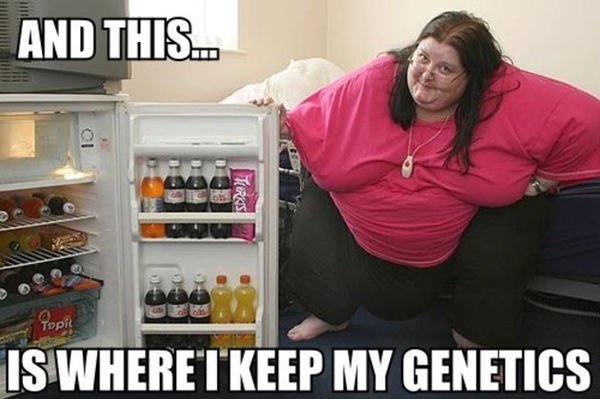
"One cannot think well, love well, sleep well, if one has not dined well.”
― Virginia Woolf
I don't think anyone would argue that nutrition is NOT a major part of being fit. In fact, ever since becoming a fitness celebrity with triple digit YouTube subs, most of the questions I get from people have to do with what types of foods they can and can't eat.
I would hope that most of you know that processed junk like pic-related are not good for you and will make you fat.
But it's the less obvious food choices that tend to trip people up. What about things like:
- Coffee
- Wine
- Peanut butter
- Fruit
- Meat
- Milk
Before we get into those, I'll give you the one simple guideline that you can use to determine whether or not you should eat something.
When you want to eat something, ask yourself these questions:
- Is it natural?
- Did it grow out of the ground, off of a tree, or come from an animal?
- Is it unprocessed?
- If there was a nuclear apocalypse and all technology was wiped out, would we be able to recreate it in its exact form?
If the answer to these is yes, then you can eat it.
If the answer is no, then you can still eat it. But you should feel bad because you're a terrible fat loser and nobody will ever love you.
This is commonly known as the paleo diet, i.e. foods that were available in the paleolithic era. Rebranded as the "Primal Diet" by soap opera TV star Aajonus Vonderplanitz, it seems to have been getting some love lately (and rightfully so).
Meat, fish, and poultry
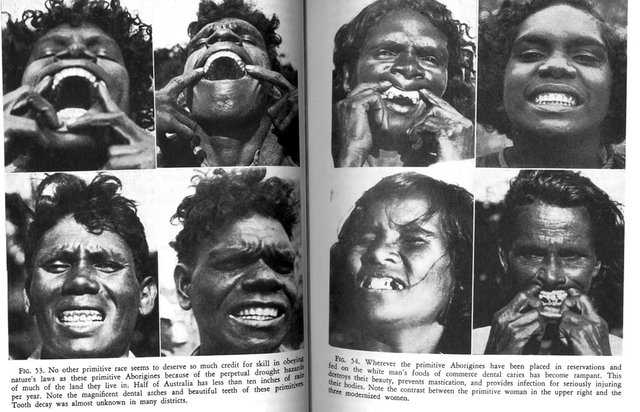
The latest craze these days is the Carnivore Diet. As far as fad diets go, this one is actually not too terrible.
Popularized by Jordan Peterson, author of "12 Rules For Life: An Antidote to Chaos," (great book by the way), the Carnivore Diet is pretty straightforward: eat almost nothing but meat every single day. If you MUST have non-meat foods, they should ideally be other animal products.
Think of it like the anti-vegan diet.
The common wisdom is that red meat is bad, causes something called "heart disease" (whatever that is), and will make you fat and die an early death.
This misconception is the result of a discredited theory against cholesterol. Here's an excerpt that explains it well:
As with many other fears, fear of dietary fat originated in alarm over a supposed epidemic — in this case, of coronary heart disease. The best known advocate of this theory was Ancel Keys, a physiologist at the University of Minnesota in Minneapolis. After the Second World War, Keys became curious about something that kept cropping up in local newspapers. Many local business executives were being struck down with sudden heart attacks.
The most likely cause of the attacks was smoking, but Keys wasn’t looking for that. He tested 286 middle-aged businessmen and found high levels of cholesterol in their blood. He soon concluded that this buildup of cholesterol was the main culprit in the businessmen’s heart attacks.
A few years later, in 1952, Keys found support for his theory on a visit to Naples, Italy. There, he was told that practically the only coronary patients in the city’s hospitals were rich men in private hospitals. (No one seems to have told him that poorer Italians, especially in the south, clung — often with good reason — to the old notion that few patients emerged from hospitals alive and avoided them at all costs.)
Later that year, in Madrid, Keys took blood samples from some men in one of the city’s working-class quarters, where heart disease was also said to be rare. Then he did the same with 50 well-off patients of a prominent Spanish doctor who had told him that heart disease was rife among them.
Lo and behold, the Naples firemen and poor people in Madrid had significantly lower levels of cholesterol in their blood than the wealthy madrileños, whose serum cholesterol levels were as high as those of the Minnesota businessmen.
To Keys, this seemed conclusive proof that high-fat diets caused high cholesterol in the blood, which in turn caused heart disease. Keys’s theory did have a sort of commonsensical appeal. It also made eminent sense to Dr. Paul Dudley White, America’s most prominent cardiologist. White, like Keyes, became convinced that the simple diets of Italians held the key to their immunity from the epidemic of heart attacks.
Source: Cholesterol: How a now discredited diet theory became a national mania
And so began a multi-decade crusade against anything that had to do with cholesterol and dietary fat. Whole milk, eggs, red meat, butter.. all of it demonized because of this one misleading study.
I hope my uncle doesn't read this
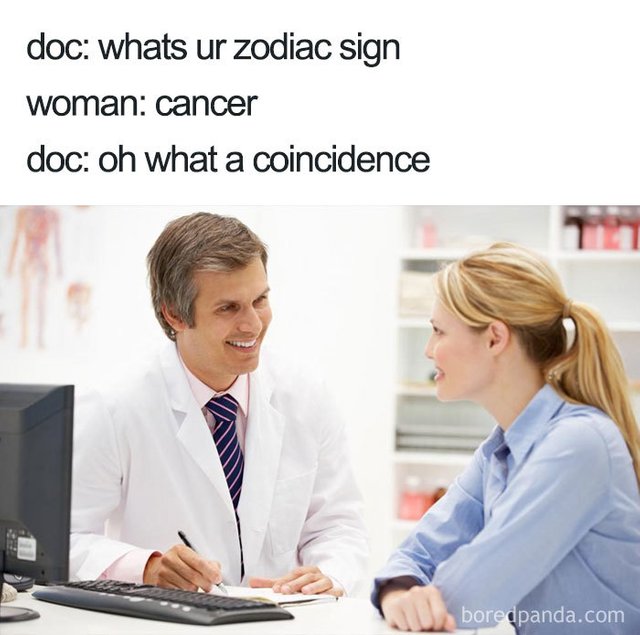
Remember earlier in when I mentioned that you should think for yourself? Here's where we start to see why.
The nutritional science industry is notoriously biased, misleading, and full of bad information designed to sell products to consumers or regulate a single metric of health EVEN AT THE EXPENSE OF the overall health of the organism (i.e. statins may lower cholesterol, but they cause Alzheimers).
In fact, the medical profession as a whole is so fucked up that unless I suffered a crushed pelvis from falling off the roof of my building, I would never go to a doctor for any sort of treatment. And even then I'd probably do a Google search on how to fix it on my own.
Doctors' main concern is not necessarily providing the most effective cure, but prescribing legal-friendly treatment that won't get them sued. If they help someone along the way, great. But if not, then they have nothing to worry about as long as they did everything by the book.
Not to say all doctors are heartless bastards who will just write prescriptions to get you out of their office (especially my uncle - I appreciate all the times you helped me, even if you didn't write me an off-label Rx for Modafinil).
In fact, I'm sure most of them probably enjoy helping people. But unless your doctor is visibly fit by modern standards, maybe you should get your health advice from another source.
But that's a rant for another time...
Back to the point, the short version is that high-fat foods are not bad for you and should be consumed freely. Really what you want to eat is a lot of protein, but if you get your protein from liver and eggs (two nutrient-dense high-fat foods), then that's fine.
Speaking of liver, it's easily the most nutrient dense food on the planet. Packed with all kinds of good stuff, if you're not eating liver then you need to start.
Put simply, a diet high in meat is the most nutrient-dense, most satiating (which leads to less snacking), and will not spike your insulin like carbs.
Fruits and vegetables - food for the mentally ill?
We've all heard since we were young that we needed to eat our fruits and veggies. But did we really?
Spoiler alert: no.
Vegetables are made up of indigestible fiber and water - they contain virtually no nutritional value.
Some vegetables have some peripheral benefits aside from minerals/vitamins/calories and you could make the argument for consuming them (celery has been proven to boost testosterone, for example), but generally they're just a waste and there's no reason to eat them unless you're just trying to be polite.
But what about fruits?
Generally, fruit has a better nutritional profile than vegetables. Pineapple has bromelain which helps to break down meat, coconut has MCT oils which have been proven to be beneficial for brain health, and mangoes are known as King Of The Fruits for good reason.
All that said, what about the claims that vegans and vegetarians are healthier people and live longer lives?
Setting aside silly things like "science" and "facts" for a moment, we can use the same thought process that we used for our training protocols to determine whether or not the eating style of these people should be modeled in the pursuit of optimal health.
If we want to look like a sprinter, we train like a sprinter.
So if we want to look like a vegan, we eat like a vegan.
Before we start judging vegans for being malnourished mentally-ill attention-hungry vanity-obsessed virtue-signaling weaklings who will quickly be weeded out of the human race, let's define the term.
A vegan is someone who does not eat or use any animal products.
The biggest anti-vegan that I can think of would have to be Sv3rige - a Latvian YouTuber and ex-vegan who almost exclusively makes videos poking holes in the vegan diet and critiquing vegan YouTubers for their poor health choices.
He's got a few videos titled, "Vegans: The Epitome Of Malnourishment" that are equal parts entertaining and frightening. It's like watching creepy, mentally deranged, post-apocalyptic wasteland survivors complain about their health while ignoring the elephant in the room: that their poor health is likely caused by their choice to abstain from consuming animal products.
This in and of itself wouldn't be so bad if they didn't claim that a vegan diet was just as healthy as a meat-based diet. But I won't spoil the videos for you.
Highly recommended that you watch them:
- Vegans: The Epitome Of Malnourishment 1
- Vegans: The Epitome Of Malnourishment 2
- Vegans: The Epitome Of Malnourishment 3
- Vegans: The Epitome Of Malnourishment 4
Some traits that vegans (at least vegan YouTubers) seem to share:
- Rotting teeth
- Little to no muscle mass
- Women have virtually no body fat in the places they should (bust, ass)
- Women have no waist (a sign of infertility)
- Premature aging
- Mentally unstable behavior (may be partially attributed to the attention-seeking nature of YouTubers)
- Visible confusion and brain fog
- Constant complaints about their health (digestion issues, injuries)
- Mysterious skin issues (pimples, rosacea, dermatitis, etc)
- Hair fall (men and women)
Needless to say, these are probably not the type of people you would want to model in terms of health.
Yes, the way animals are treated is cruel and unfair, but we are talking about the health aspect of the diets here, not the ethical one.
Ethically, vegans win all the way, no doubt. I suppose you have to respect them to some degree for the sacrifice of their health for the sake of animals that will never know the difference. But until a satisfactory substitute for animal products is found, it's highly recommended you avoid a plant-based diet.
Speaking of which, theoretically it is possible to be a "mad scientist" vegan. There are a few out there, but the amount of knowledge, preparation, and synthetic supplements required to sustain such a lifestyle is impractical for most people. Eating animal products is just much easier.
Furthermore, virtually all of the vegans you see who look like bodybuilders are likely on steroids or other PEDs. But then again, so are most celebrities in the fitness industry that make a living from showing off how fit they are.
Alright fine, vegans are insane. But does that mean that fruit is bad?
Sort of.
Why would you eat that piece of fruit instead of another piece of meat? If you don't have a concrete reason based around getting a nutrient that isn't found in an animal product, then technically it should be avoided.
Of course we are all human beings, and having a fresh fruit shake or some grapes here and there is not going to kill you. But there is a difference between having a bit of fruit every day and deriving more than 10% of your daily calories from it.
Legumes and grains
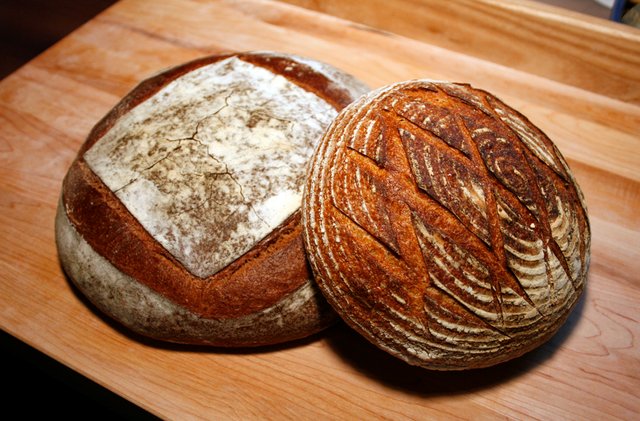
These two get a lot of hate for something that the fitness Zeitgeist has latched onto recently: anti-nutrients.
Anti-nutrients are substances that prevent your body from absorbing nutrients. Brought to the public's attention by famed dentist Weston A Price, these were discovered to have a net harmful effect by demineralizing the teeth of people in cultures who consumed them regularly.
The Weston A Price Foundation website describes his work pretty well on their website:
Price traveled the world over in order to study isolated human groups, including sequestered villages in Switzerland, Gaelic communities in the Outer Hebrides, Eskimos and Indians of North America, Melanesian and Polynesian South Sea Islanders, African tribes, Australian Aborigines, New Zealand Maori and the Indians of South America.
Wherever he went, Dr. Price found that beautiful straight teeth, freedom from decay, stalwart bodies, resistance to disease and fine characters were typical of native peoples on their traditional diets, rich in essential food factors.
When Dr. Price analyzed the foods used by isolated indigenous peoples he found that they provided at least four times the calcium and other minerals, and at least TEN times the fat-soluble vitamins from animal foods such as butter, fish eggs, shellfish and organ meats.
The “primitive” Seminole girl (left) has a wide, handsome face with plenty of room for the dental arches. The “modernized” Seminole girl (right) born to parents who had abandoned their traditional diets, has a narrowed face, crowded teeth, and a reduced immunity to disease.
The importance of good nutrition for mothers during pregnancy has long been recognized, but Dr. Price’s investigation showed that indigenous people understood and practiced preconception nutritional programs for both parents. Many tribes required a period of premarital nutrition, and children were spaced to permit the mother to maintain her full health and strength, thus assuring subsequent offspring of physical excellence.
Special foods were often given to pregnant and lactating women, as well as to the maturing boys and girls in preparation for future parenthood. Dr. Price found these foods to be very rich in fat soluble vitamins A and D nutrients found only in animal fats.
Their entire website is a wealth of information and should be read in its entirety if you're looking for more information. I'll leave you to do that on your own, but for now let's look at what they say about anti-nutrients:
Phytates found in beans, grains and other seeds are anti-nutrients that block proper absorption of iron, zinc, calcium and other minerals. They are a leading cause of poor growth, anemia, immune system incompetence and other health woes in Third World countries where plant-based diets are the norm, and are increasingly a problem in First World countries where plant-based and vegan diets are widely considered chic and healthy.
There are two articles on their site which I'll link to below and are very much worth a read. But to keep things simple, eat these foods strategically, if at all. The article also contains ways to reduce the phytic acid in these foods by methods like soaking, sprouting, roasting and more. You can still eat them, but it's best to prepare them properly.
Plants Bite Back
Living With Phytic Acid
Eating frequency and you
The mainstream fitness community often claims that fitness and nutrition are the only things that matter when it comes to health. However I would argue that one thing they leave out of the equation is the importance of eating frequency when it comes to getting and staying lean.
When we eat something, our body releases a hormone called insulin. Insulin is a hormone made by the pancreas that allows your body to use sugar (glucose) from carbohydrates in the food that you eat for energy or to store glucose for future use.
You may have heard of something called the Glycemic Index (GI for short). The Glycemic Index is a relative ranking of carbohydrate in foods according to how they affect blood glucose levels.
High GI foods will spike your insulin faster than low GI foods. A can of Mountain Dew will spike your insulin faster than a piece of raw red meat.
When it comes to staying lean and fit, controlling your insulin levels is the name of the game. Once you understand this concept, getting in shape becomes extremely simple.
Think of it like this:
- You eat something
- Insulin levels go up
- You get fatter
The more often this process occurs, the fatter you'll get.
This is an extremely simplified explanation and there is some nuance which we'll get to in a second. But for now, just understand that if you're trying to lose weight, it's as simple as eating less frequently.
This is also known as fasting - not to be confused with intermittent fasting which is a complete joke.
Fasting has a slew of benefits other than controlling your insulin levels. Fasting has been proven to slow the aging process, increase the rate of wound healing, and prevent the occurrence of age-related diseases (Source.).
Get ready for a statement that you might think is crazy - but fasting can even cure cancer WITHOUT the use of outdated treatments like chemotherapy and radiation. More on this in a future article.
In the YouTube community, the leader in fasting is currently Cole Robinson, creator of the Snake Diet.
When I first heard about the Snake Diet, I thought it was a scam designed to sell a certain type of supplement or workout video. Imagine my pleasant surprise when I found a foul-mouthed personal trainer from Canada making hour-long videos saying things like "fat people should just stop eating."
The funny thing is that he's absolutely right. That's EXACTLY what fat people should do. That's also what lean people should do, too.
Our whole lives, we're hammered with axioms like "breakfast is the most important meal of the day," (a slogan created by James Kellog to sell Cornflakes) and "if you don't eat you won't have energy," but I encourage you to pull back for a moment and consider that these recommendations could be the result of social programming and clever slogans from the breakfast cereal industry.
An excellent book on the subject is "The Warrior Diet," by Ori Hofmekler. It's hard to summarize the genius of this book in a single paragraph, so I'll steal this explanation from Diet.com's article on the book:
The Warrior diet was designed by Ori Hofmekler (b. 1952), a former member of the Israeli Defense Force (IDF), an artist, and a contributing editor of Penthouse magazine for 17 years. He was health editor of Penthouse from 1998 to 2000.
Hofmekler created the Warrior diet on the basis of his own experiences in the Israeli army and his own theories about how such warriors in ancient history as the Roman legionaries ate and trained.
He stated in an interview with a bodybuilder named Mike Mahler that “I did not really come up with the idea [for the diet]; the idea came to me. It really started when I was in the Israeli Special Forces. I found out that some of my friends and I were doing much better when we reduced the eating during the day, or active time, and ate during the time when we knew that we could rest. I realized that when I ate the traditional 6 to 7 army meals plus snacks, I got more exhausted than ever.
"I suffered from energy crashes and my brain was not as focused and alert as I wanted it to be. . . . I felt a tremendous difference when I reduced drastically the amount of food I consumed during the day. Later when I went on to university and started my career as an artist, I realized that when I minimize eating during the day and have one main meal, I feel much more creative; much more alert. . . . After doing some research, I found out that other warriors of the past used to live like this and that is where I really got intrigued.”
The book is absolutely based and an entertaining read for anyone who is interested in improving their health. I was fortunate enough to read it back in 2002 and have been eating one meal a day pretty much ever since.
OMAD... more like SLOWMAD
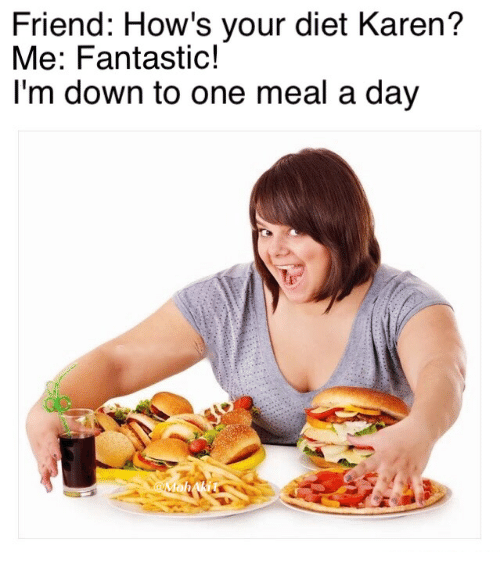
Eating OMAD (One Meal A Day) is a step up from intermittent fasting, a term that gets thrown around so much these days that it's lost all significance.
People seem to think that not eating for 4-5 hours is considered intermittent fasting, when in reality a break of just a few hours is not enough to reset your insulin sensitivity to any measurable degree.
But generally speaking, intermittent fasting is broken up into 16 hours of fasting and 8 hours of eating. The problem with this is that you are still allowing yourself an eight hour "eating window" in which you can spike your insulin repeatedly, giving your body more and more opportunities to make itself fatter.
OMAD is a little more hardcore - you fast all day and eat one massive meal at night. Common arguments against this are "it will mess up your metabolism" and "you're not supposed to eat a lot of food at night" which we will debunk below.
First of all, the concept that metabolism is a "thing" and not a process is a clear sign that the person 1) has done absolutely no research and 2) has never tried fasting all day and eating one meal at night and has no experience with it.
Metabolism is the rate at which your body uses energy. There is no metabolism muscle, no metabolism organ, no metabolism thing in your body to speak of. The more muscle you have, the higher your BMR (basal metabolic rate - calories burned at rest) will be.
What these poor, confused people probably mean is that eating one large meal will reduce the rate at which your body metabolizes energy.
"Oh but that's just semantics. You know what they mean."
We'll see why semantics is important in one of the next sections. But regardless, they're still wrong.
In fact, eating a massive meal at night will actually raise your metabolism.
It's similar to working out in that your body will adapt to the additional pressure you put on it. Eating larger and larger meals will train your body to metabolize larger and larger amounts of food.
Occasionally you'll see people post things like, "Your body can only digest 30 grams of protein at once! Any more will just be wasted!"
As if every single human being on the planet was identical, and could only digest exactly the same amount of protein at once, and it was impossible to increase or decrease this number regardless of specialized training, dietary changes, illness, or lifestyle.
Sure.
But getting back to the point, the main benefit of eating one massive meal a day isn't actually in the meal itself.
Sure it's fun to frighten your friends and family by scarfing down three meals worth of food in a single meal (they'll warn you about "messing up your metabolism" despite the fact that you're lean and they're fat), but it's the 20+ hours of daily fasting that's where the magic really happens.
The simplest way to think of fasting is that by taking the pressure off your digestive system to work constantly, you're allowing your body to focus that energy on getting rid of excess fat and water stores.
Here's a simple way to understand it: your body stores fat to be used in emergencies. The idea is that when there isn't any food around, your body will be able to use the fat as energy.
Excess body fat is completely unnecessary for people living in the modern world.
In other words, if you're fat, you don't need to eat in order to survive. Your body will burn the fat that you have for energy until it's all gone.
Snake Diet Guy says this in a much more colorful way, but he's right. The only thing you need to consume while fasting is some kind of electrolyte mix and water. The general prescription is 1-2 liters of water per day mixed with some sodium and potassium.
This is colloquially called Snake Juice and can be made virtually for free. There are plenty of recipes on the internet, but it's recommended you experiment and find what combo works best for you.
Depending on your goals and current lifestyle, you should consider doing between 48-72 hour fasts. If you're carrying around a lot of extra weight, feel free to keep fasting until you feel like shit. Don't feel like you "need" to eat just because a certain amount of time has passed.
Personally speaking, I have a hard time getting past 72 hours. But I also work out 1-2x per day for several hours which includes lots of running and getting kicked by deceptively strong Thai people.
More importantly, you need to become aware of the difference between wanting to experience the momentary pleasure of tasting food and your body's need for actual nourishment.
If you decide to start fasting, you'll realize that most of the time you don't actually eat because you're hungry.
- You eat because it's a way to spend time with your friends and family.
- You eat because it's a way to alleviate boredom if you have nothing to do.
- You eat because you've been working for several hours writing a massive article on fitness and want to experience the momentary pleasure of some Thai noodle soup.
One of the things that I personally like best about fasting is that it's pretty much unparalleled in its ability to shave off those last 2-3 pounds of fat from your lower abdomen.
In fact, one of the reasons why I experimented with so many different types of training was because I was trying to find the "perfect" routine that would give me that shredded look.
It never occured to me to just not eat. I always thought that I needed to eat otherwise bad things would happen.
But not only did nothing bad happen, but I didn't experience much of a drop in energy either. And this is doing 2x a day Muay Thai sessions and running 5 miles a day in the Thai heat.
Sure, the morning workout on day 2 might not have as much juice as the morning workout on day 1. And I might even skip the afternoon workout on day 2 if I'm really gassed. But to lean out, strengthen your discipline, and prove to yourself that you're capable of things you used to think were impossible all in a single day is a nice bundle of benefits for what essentially amounts to skipping a few meals.
To learn more about fasting, I recommend you watch Snake Diet Guy's videos. Watch about 20 of them and you'll get the idea.
The best supplements you've probably never heard of
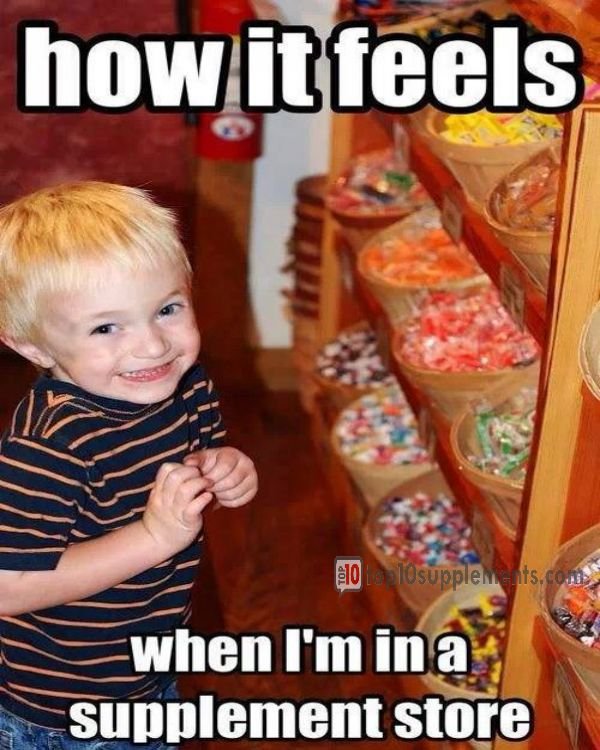
Supplements are aptly named because they do just that: they supplement the work you're already putting in. They're not a substitute for cardio, healthy eating, or spacing out the frequency of your meals.
I've been on the supplement train for probably as long as I've been working out and I'm an avid believer in the slogan "better living through chemistry."
I base my recommendations on a mix of scientific studies and anecdotal experience (both mine and what I read in forums). But much like the concepts I explained in the previous sections, I prefer anecdotal evidence over the science.
This may sound like sacrilege, but in my experience science is most effective as a starting point when it comes to health.
If these studies were performed on scientists - not rats - who then gave their subjective opinions on how they felt after taking them, I might give them more weight. But then that would just be another form of anecdotal evidence, wouldn't it?
Does this mean I don't do research into supplements and that I just pop pills and hope for the best? No.
I use Examine.com for my research. They aggregate all the studies on supplements and write a review of the findings. It's not perfect, but like I said it's a good starting point.
When semantics is important outside of philosophy class

Finally, beware the term "there's no scientifically-backed evidence that suggests..."
This phrase is pure cancer and only used by journalists, "researchers," and pharmaceutical spokespeople to discredit anecdotal evidence and cover their own asses.
This is not an offhand comment said in casual conversation. This is a carefully crafted phrase designed to avoid legal trouble and prevent people from considering alternative therapies for their illnesses (which are normally natural, free, and/or extremely cheap).
While I'm aware that this isn't a piece about linguistics, it's important to note that these are some of the underhanded strategies used by the medical/pharmaceutical/food industries to keep regular people in the dark about the potential causes and treatments of their illnesses.
Consider the difference between the two statements:
- There is NO scientifically-backed evidence that suggests that fasting cures cancer.
VS
- There is scientifically-backed evidence that suggests that fasting does NOT cure cancer.
The only difference between the two statements is the placement of the negation. "NO scientifically-backed evidence" vs "does NOT cure cancer."
The average person might say that it's just semantics, or the Ultimate Phrase Of People Who Don't Like To Think Too Hard: Come on - you know what they mean.
It's much easier to spot if we plug in different words.
- There ARE NO scientific studies that have tested and proven the hypothesis that fasting cures cancer.
VS
- There ARE scientific studies that have tested and proven the hypothesis that fasting does NOT cure cancer.
Do you see it yet? Let's try again.
- There NO movies that prove that aliens exist.
- There ARE movies that prove that aliens DO NOT exist.
In all the examples, the first statement claims that the scientifically-backed evidence to back up the claim doesn't exist.
This does not disprove the claim, but rather states that there is no scientific evidence that backs it up.
The second states that there is scientifically-backed evidence that disproves the claim.
Get it?
With the first statement, it's entirely possible that the claim is still true, but that no scientists have gotten together and requested funding to perform the study.
The second statement states that the claim itself is invalid because scientifically-backed evidence exists that has disproven it.
Most people confuse the first statement with the second and don't give it any more thought.
But what they don't realize is that the offending parties state it in the first way for that exact reason - because they know that most people won't bother examining the literal meaning of the phrase.
It's very subtle, but once you understand that this is what's happening, you'll start to see it everywhere.
Click here to continue to part 2.
Click here to support me on Patreon.
Want to watch me in real time?
Subscribe to my fitness YouTube channel!
Still can't get enough of me? Follow me on Instagram!
Want more? Read these for Ultimate Enlightenment:
- The Broke Loser's Guide To Making Money Online
- The Unapologetic Pursuit Of International Glory And Recognition
- How To Actually Bring More Business Owners To Steem[it]
- How I Used Paigham Bot To Get All My Clients For Social Media Management
- F
- Steemit's Great Pretender
- AUTISM INTENSIFIES
- So You Want To Be A Digital Nomad
- Take My Crushed Dreams And Snort Them Through A Rolled-Up ???itcoin
- Strong Independent @YallaPapi Don't Need No Whale
- Hey Steemit Whales, How'd You Like To Fix All Of Steemit's Problems And Make Bank By Doing Absolutely Nothing?
- #SharkSchool Lesson 6: REEEEEEEEEEEEEEEEEEEEEEEEEEEEEEEEEEEEEEEEEEE
- #SharkSchool Lesson 2: Develop A Taste For Other People's Blood
- Mmmm Yeah Baby, Put It In My Reward Pool
- How To Stop Being Such A Loser
- Why Everything You Know About Investing In Crypto Is Wrong
- Why Steemit Is A Giant Circle-Jerk And How To Make It Work In Your Favor
- How To Get To The Trending Page On Steemit Even If You're An Autistic, Paint Chip-Eating Bork Like Me
- How To Use Steemit To Trick People Into Reading Your Poorly-Written Garbage
- How To Use Steemit To Make Yourself Feel More Important Than You Really Are
- Why Creative Work Is Its Own Reward And How To Get Better At The Things You Hate
- All I Want Is A Billion Dollars, A Rock-Solid Six Pack, And To Smash A Different Hard-Bodied Fitness Model Every Night - Is That Too Much To Ask?
- How To Be Successful In Just 100 Hours A Week
- Discipline, Fearlessness, And Other Lies Sold To You By Clever Marketers
You can follow, resteem or smash dat mf upvote button.

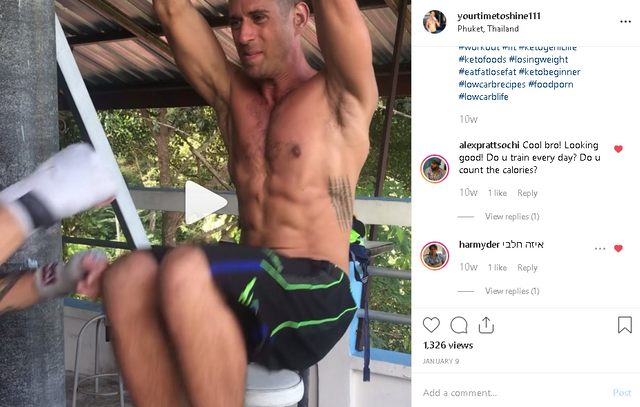
Finally a bit of yallapapi love
Heh I thought I would bless you guys with some knawledge. No more boosting posts though :( Maybe in the future if I do another affiliate promotion, we'll see.